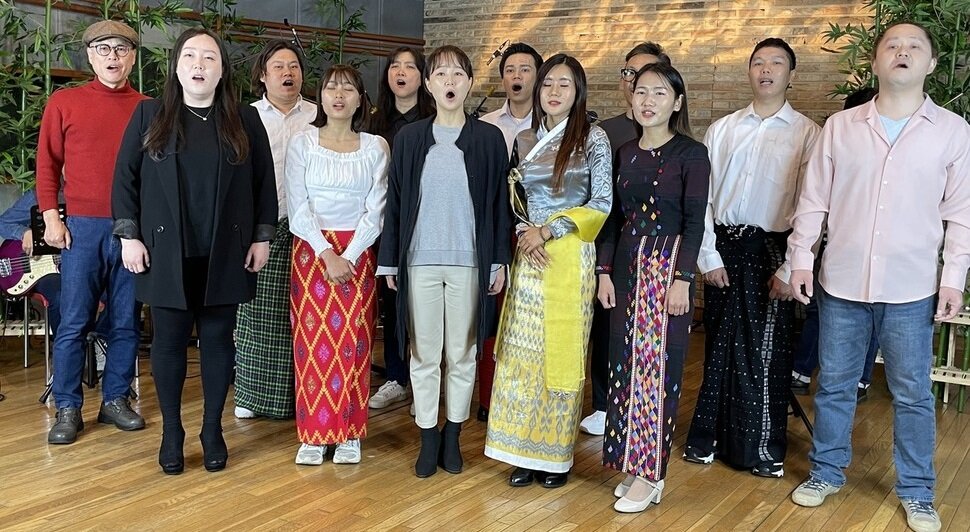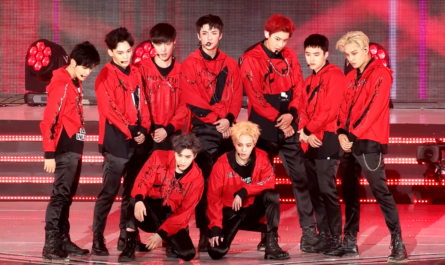“I felt a lot when I saw the scene where we sang our resistance songs in Hong Kong and Myanmar. This is why I translated the lyrics of folk songs into English and made a video for sharing Korean democracy with people around the world.”
Sohn Byung-hwi, president of the Korean Federation of National Art Societies in Seoul, explained planning the video for ‘K (K) Democracy Song.’ The video released on the 10th can be viewed on YouTube’s Seoul Folk Crafts Federation and Son Byung-hwi TV (TV) channels. Chairman Son, who started his activities in 1993 with the college student song ‘The Fatherland and Youth’, is a representative folk singer who has released eight regular albums, including solo activities.
He first preached the excellence of Korean democracy. “What our social system is doing well in a pandemic is to show the strength of our society that has been built up through democratization as much as industrialization. I heard that the whole world appreciates not only the economy of the Republic of Korea but also democracy.” This is the reason why ‘K-Democracy Song’ was introduced at a time when K-pop, represented by BTS, and K-content such as and are creating a global craze.
The songs that you can hear in the video are ten songs that were resounding at the scene of the democratization movement, such as ‘March for People’ and ‘Burning Thirst.’ It was sung by Son Byung-hwi, Moon Jin-oh, Ryu Geum-shin, Son Hyun-suk, Yeon Young-Seok, Song Soon-Gyu, and Acacia, and English subtitles with translated lyrics are also available. It doesn’t end with just a song. The lyrics, dances, pictures, photos, and poetry add resonance. Actors Kim Gyeong-rak and Jang Yong-Cheol recite Kim Nam-Joo and Shin Dong-yeop, while dancers Lee Sam-heon and Yang Hye-Kyung perform their dance moves.
The video’s first scene is ‘March for Immortality’ sung by Myanmar students. A photo of brutally trampling on Myanmar citizens who demand democratization leads to a photo of the May 18th Gwangju Democratization Movement. The Seoul People’s Craft Federation sent a ‘March for People’ video to Myanmar, sung by dozens of singers and actors to support the Myanmar democracy movement. In this video, international students from Myanmar who supported the democratization movement in their home country while studying in Korea participated.
‘Let’s go on this road together, often called at the scene where solidarity is needed, also works as a useful mechanism to reflect on the memories of the site of the democratization protest. The Japanese ‘Stand Up Choir’ sings the first verse of this song in Korean. Hiroki Yamada, secretary-general of the choir, said, “Korean democracy is always our hope. In the future, we will sing democracy together with Koreans.” Chairman Son said, “The ‘Stand Up Choir’ is a choir that mainly plays resistance songs from Korea and Japan.
In ‘With Burning Thirst,’ actor Kim Kyung-rak reads a ‘letter’ from Kim Nam-Joo’s poem. “The song itself was based on a poem from the Yushin era in the 1970s, and it is a lively song. The young people who left for Thatcher with the expectations of their families left behind the safety of themselves and their families and walked the path of hardship. It is said that poet Nam-ju Kim also wrote letters to his mother while in prison. I think it is a poem that fits well with the poet, the emotion of the poem, and the object of confession (mother).” In ‘In the Wilderness,’ Shin Dong-yup’s poem ‘Let the shell go’ is read. “He is a great poet. It means to shake off the contradictions of division, to break through the narrow field of vision, and to go into the wild but vast wilderness.”
Dance is also featured. When ‘Desperately’ comes out, Yang Hye-Kyung performs a relentless dance at Platform 9-4 of Guui Station on Seoul Subway Line 2. A young irregular worker in his 20s passed away in May 2016 after failing to avoid the train while inspecting the screen door. In ‘Cheonggyecheon 8-ga’, Lee Sam-heon dances at Jeontail Bridge in Cheonggyecheon. “Yeon Yeong-Seok, who wrote and sang ‘Desperately,’ is a singer-songwriter who mainly works in the workplace. The desperation is well reflected in the lyrics such as ‘The world receives as much as I work.'”
Chairman Son himself sang ‘Even if we don’t go side by side 2’, often sung at the Candlelight Protest in Gwanghwamun. “I initially envisioned it as an ode to the candlelight vigil, but I ended up making it with the message of anti-war peace. This song has been translated by Japanese and sung all over Japan.”
Lee Cheong-san, chairman of the People’s Craft Federation, Shin Won-Cheol, a member of the Seoul Metropolitan Government, Jeong Gil-Hwa, director of the International Cultural Exchange Promotion Center, and Lee Won-young, executive director of the Democratization Movement Commemoration Association, sent congratulatory messages via video. Rep. Shin Won-Cheol said, “I was surprised to see ‘March for Impersonation’ on TV during the Hong Kong pro-democracy protests. I think the power of song is a cultural asset that transcends time and space and fosters a sense of unity and solidarity.”
Chairman Son said, “‘Nueva Cancion,’ a democracy song in South America, was widely sung worldwide because it was a Spanish song written by hundreds of millions of people.











